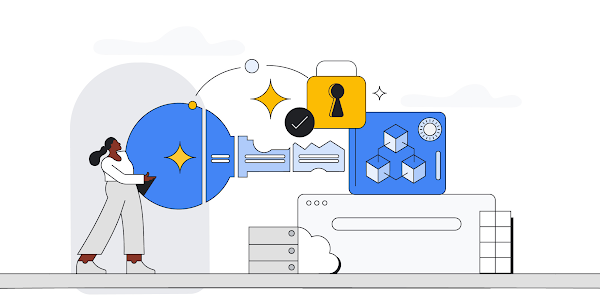Managing digital asset transactions and their often-competing requirements to be secure and timely can be daunting. Human errors can lead to millions in assets being instantly lost, especially when managing your own encryption keys. This is where multi-party computation (MPC) can help reduce risk stemming from single points of compromise and facilitate instant, policy-compliant transactions. MPC has proven valuable to help secure digital asset transactions because it can simplify the user experience, and it can create operational efficiencies, while users retain control over their private keys.
Google Cloud customers can implement MPC solutions with our new Confidential Space, which we introduced at Google Cloud Next in October. MPC enabled by Confidential Space can offer many benefits to safely manage and instantly transact digital assets:
Digital assets can be held online without requiring cold storage.
You can use an institutional-grade custody solution without having to give up control of your private keys.
Distributed parties can participate in a signing process that is both auditable and policy-compliant.
All parties can produce their signatures while not exposing secret material to other parties, including the MPC platform operator.
An individual private key represents a single point of failure in the digital asset custody and signing process. In an MPC-compliant model, an individual private key is replaced with distributed key shares. Each key shareholder collaborates to sign a transaction, and all actions performed by all parties are logged for offline auditing. No key holder exposes their key share to another key holder or to the platform operator. Unlike multi-signature, a single private key is not assembled or stored anywhere.
An attacker coming from outside the organization would need to compromise multiple parties across multiple distributed operating environments in order to get access to a key that can sign a transaction. MPC is resistant to insider attacks against the platform operator or key holder because no single key can sign a transaction and the operator can not access the key. Since multiple parties must come together to approve and sign each transaction, MPC-based digital asset custody solutions can better facilitate governance. The solutions provide the ability to create and enforce policies that control who must approve transactions. This prevents a single malicious insider from stealing assets, including the party that owns the workload or a workload operator.
Because Confidential Space is built on our Confidential Computing platform, it leverages remote attestation and AMD’s Secure Encrypted Virtualization (SEV). This allows us to offer a more secure environment, fast performance, and seamless workload portability. This foundation can enable the MPC operator and co-signer workloads to run in a Trusted Execution Environment (TEE). Co-signers can have control over how their keys are used and which workloads are authorized to act on them. Finally, with the hardened version of Container-Optimized OS (COS), Confidential Space blocks the workload operator from influencing the signing workload.
Deploying MPC on Confidential Space provides the following differentiated benefits:
Isolation: Ensures that external parties cannot interfere with the execution of the transaction signing process.
Confidentiality: Ensures that the MPC platform operator has no ability to access the key material.
Verifiable attestations: Allows co-signers to verify the identity and integrity of the MPC operator’s workload before providing a signature.
“MPC solutions will become increasingly essential as blockchains continue to support more critical infrastructure within the global financial system,” said Jack Zampolin, CEO of Strangelove Labs.“As a core developer building and hosting critical infrastructure in the rapidly growing Cosmos ecosystem, MPC-compliant systems are an important focus area for Strangelove. We are excited to expand our relationship with Google Cloud by building out key management integrations with our highly available threshold signer, Horcrux.”
In 2022 the Web3 community celebrated the Ethereum merge, one of several engineering advancements that can encourage applications of MPC. For example, MPC could be used for the efficient management of Ethereum validator keys. To learn more about MPC and Web3 with Google Cloud, please reach out to your account team. If you’d like to try Confidential Space, you can take it for a spin today.
We’d like to thank Atul Luykx and Ross Nicoll, software engineers, and Nelly Porter and Rene Kolga, product managers, for their contributions to this post.
Cloud BlogRead More


